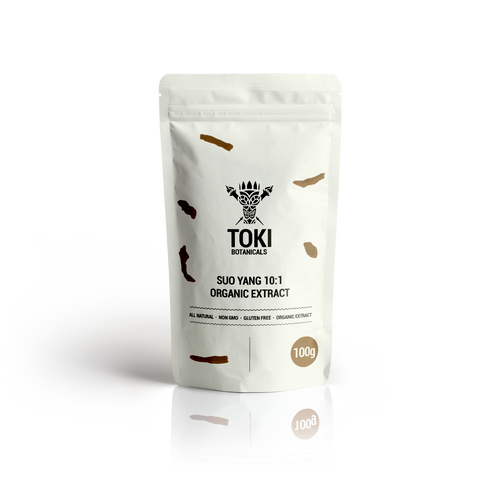Product Description
Ashitaba is nearly completely unknown here in the US, and in most parts of the world. It might be one of the best kept secrets in natural medicine, although there are many herbs that would fall into that category. The potency of ashitaba comes is mostly due to a powerful yellow sap called chalcones, or chalconoids, which are found within the stalks. Ashitaba also contains a good dose of vitamins and minerals to go along with the potent chalcones. It is highly revered in Japan, a country that is known for having one of the healthiest, longest living people on the planet.
Our extract is standardized to a potent 10% chalcones. Many ashitaba products on the market aren't standardized, so the level of chalcones is totally unknown. According to research, ashitaba has a powerful regenerative effect when the stems become damaged, which often indicates medicinal potency. This longevity herb and general panacea is said to exert a positive effect on cancer, diabetes, blood pressure, cholesterol, stomach disorders such as peptic ulcers, gastritis, GERD, neuron damage (stimulates nerve growth factor), triglycerides, inflammation, thrombosis, endothelial dysfunction, memory issues, hepatitis and liver issues, kidneys, gout, shoulder pain, bone health, wound healing, cardiovascular health, immune system issues, visceral fat, PMS symptoms, certain types of infections, and more!
Scientists from Osaka University in Japan conducted research on ashitaba that showed powerful anti-bacterial properties, particularly towards staph and strep infections. Another group of researchers led by Takata Okuyama from Meiji College in Tokyo, discovered anti-tumor effects that warrants further research. They also discovered that ashitaba protects the lining of blood vessels and had an anti-atherosclerotic effect on people with high cholesterol levels. Researchers even went so far as to say that the health problems associated with high cholesterol could be significantly mitigated by ashitaba. Research also showed that ashitaba strengthened red blood cells, and helped allow them to pass through small spaces without being damaged or ruptured. This helps to decrease the chances of a vascular incidents. (1,2)
Yet another recent study done on rats prone to strokes had an improvement on bad cholesterol (LDL), triglycerides, and blood pressure. HDL, or good cholesterol also showed improvements. (3) Ashitaba's effects on inflammation and cancer were obvious according to more research. (4) Ashitaba also may be of assistance to those suffering from gastric and digestive issues. Using medications can lead to other problems over time, and there might be an easier solution for conditions like ulcers, GERD, gastritis, and others. More research needs to be conducted, but there was a dose dependent lowering effect on stomach acid secretion when taking two different chalcones from ashitaba. In addition, chalcones may have a positive effect on depression by acting on different neurotransmitters. (5) More human research is needed, but the potential so far is very high with this interesting plant that's called “tomorrow's leaf”.
Suggested use: 600mgs 2-3 times per day
References:








